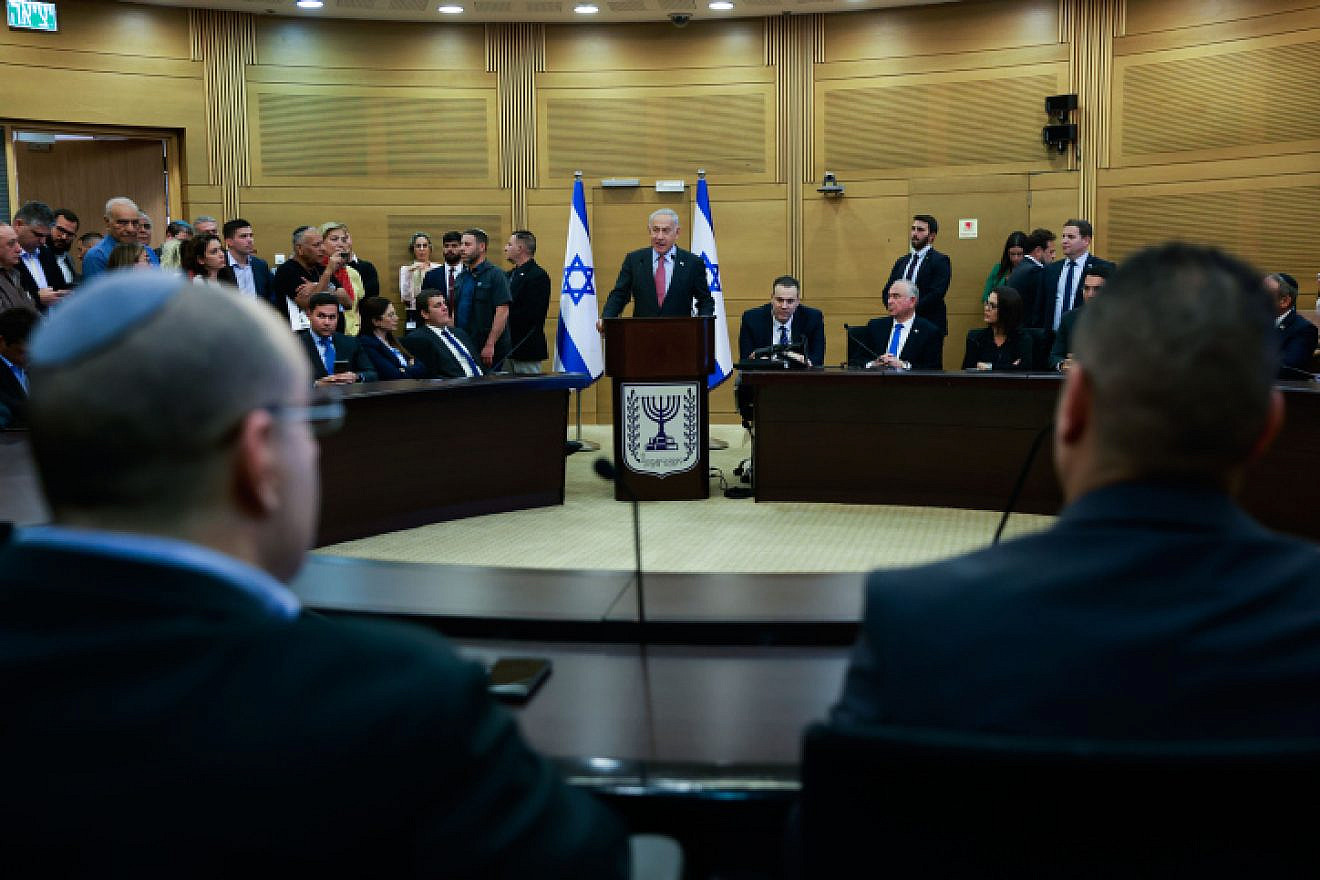Coalition party leaders met on Wednesday morning for last-minute discussions ahead of a secret ballot to choose the two Knesset candidates for the Judicial Selection Committee, which picks Israel’s judges.
Voting was expected to start at 11:30 a.m., with the results to be announced in the early afternoon.
The main question is whether the government will vote for one coalition candidate and one opposition candidate, as is tradition, or break with convention and vote for two of their own candidates.
Israeli Prime Minister Benjamin Netanyahu favors maintaining tradition, according to reports, fearing to undermine judicial reform talks and reignite mass protests, which have waned from their height in March.
At the end of that month, Netanyahu froze judicial reform legislation, faced with social unrest and a surprise March 25 press conference by his own defense minister, who warned the widening societal rift was a “clear, immediate and tangible threat to Israel’s security.”
However, Netanyahu faces pressure from his coalition partners, some of whom favor appointing two candidates from their side.
There are more than a half dozen coalition contenders vying for appointment to the committee. The leading candidate is MK Yitzhak Kreuzer of the Otzma Yehudit Party, as the Likud promised the position to Otzma Yehudit as part of a coalition deal in December 2022.
Other candidates are Otzma Yehudit’s Limor Son Har-Melech, Uriel Bosso of Shas, and from Likud, Moshe Saada, Moshe Passal, Avichay Buaron and Tali Gottlieb.
Gottlieb told Hebrew media that she will run for one of the open positions independently of what her party decides.
“I trust Netanyahu, but as far as the conduct of the judicial system is concerned, he is wrong,” she told Kan Reshet Bet. “I will run until the last minute to allow an opportunity for my members in the coalition, who are ashamed to give a prize to the opposition in the form of a representative on the Judicial Selection Committee.”
The opposition has put forward only one candidate: MK Karine Elharrar of the Yesh Atid Party. She served as minister of national infrastructures, energy and water resources in the previous government.
Opposition members warn that if the coalition does not support Elharrar and instead chooses two of its own candidates, it will spell the end of judicial reform talks.
MK Meir Cohen of Yesh Atid said on Wednesday, “If two representatives from the coalition are elected to the committee for selecting judges—that is a brazen statement. We will have nothing more to do with the talks.”
Changing the makeup of the Judicial Selection Committee is a key goal of judicial reform advocates. They say the committee is set up so that judges are effectively self-selecting, leading to a monolithic worldview within the judicial system, as only those who pass an ideological “smell test” are chosen by their colleagues for advancement.
Opponents of reform warn that handing the committee over to elected officials will give the government control of all three branches of government, undermining Israel’s system of checks and balances.


























